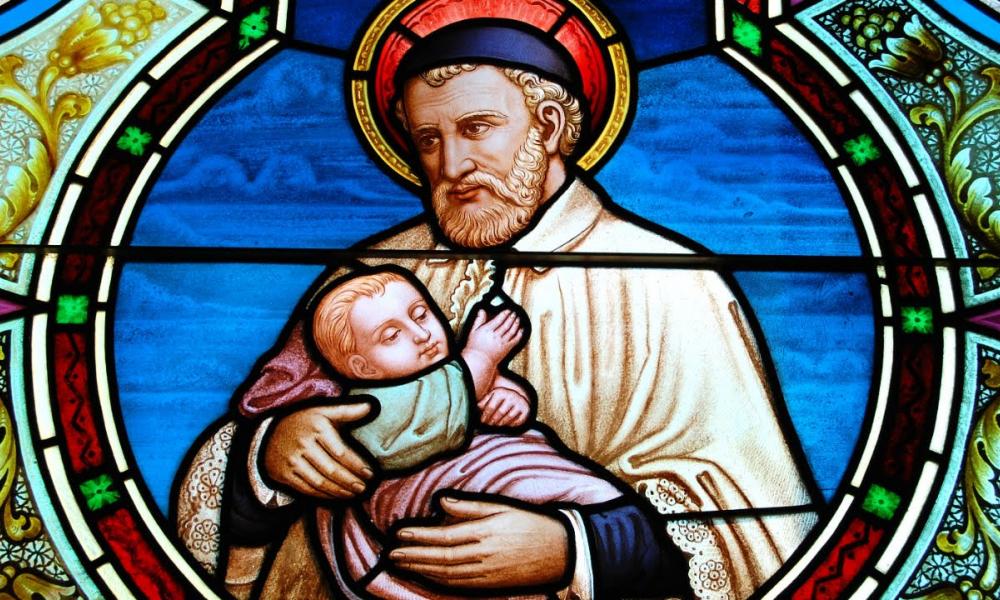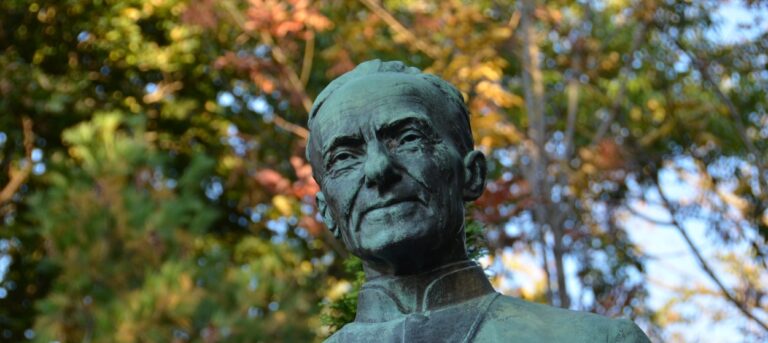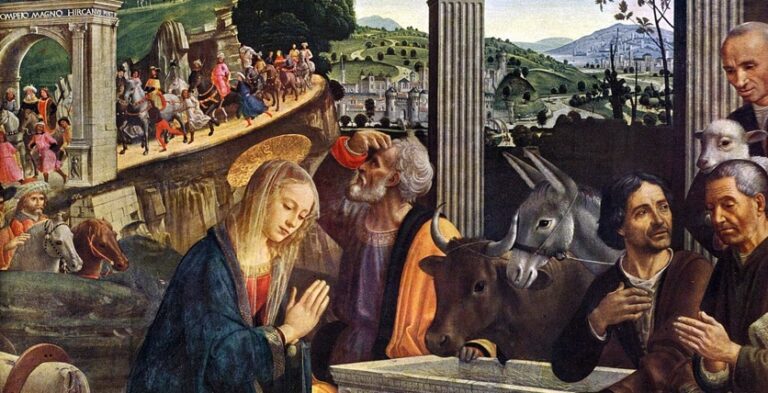
ST VINCENT DE PAUL

We recognize the name of this popular saint because of the stores that bear his name. Here in Ottawa, the St. Vincent de Paul Society has two thrift stores in the west end of the city as well as an impressive website. These stores offer people an alternative to our consumerist ways. Here, clothing and furniture can be affordable. Goods are recycled and reused. Those who are struggling financially can find support through the St. Vincent de Paul community. The website describes the mission of the St. Vincent de Paul Society as follows:
“To live the Gospel message by serving Christ in the poor with love, respect, justice and joy.”
St. Vincent de Paul’s story is one of courage, transformation, determination and faith. His name is recognizable today and synonymous with charity. He was born into a family of peasant farmers in France, the third of 6 children. An intelligent child, he was sent off to a seminary to pursue an education and the priesthood at 15 years of age. He was ordained at 19, which was not permitted at the time. Ordinations were only permitted at age 24. In his early years as a priest, he sought popularity and wealth. Vincent was well liked and he made many connections among the wealthy and the elite in Paris society.
How did Vincent become the model of service to the poor and forgotten? His life went in several directions. There are many stories that are debatable as being true to history, but they paint a picture of a determined individual who knew how to be comfortable with nobility as well as the downtrodden. One story is that he received an inheritance. On his way to access the money, he was captured by pirates and enslaved. This story, from one of his earliest letters, is often cited as a reason for Vincent’s conversion and change of lifestyle. This story adds to the legend of this infamous saint. However, his conversion was a lifetime of growing in faith and service.
St. Vincent de Paul had a profound influence on the Church that has lasted to the present day. France was involved in numerous wars and conflicts throughout his lifetime. There was a great deal of poverty. The Council of Trent had brought about reforms that were still taking place. Vincent was instrumental in the reform of the Church and society. He was appointed the chaplain and tutor to the Gondi family. Madame de Gondi and Vincent, upon visiting the many parishes of the Gondi estates, were both moved by the spiritual and material poverty of the people. Upon hearing the confession of one of the dying peasants, Vincent was moved by the man’s gratitude for receiving the sacrament of reconciliation. This experience led to Vincent’s “First Sermon of the Mission” where he spoke passionately about the necessity of making a good confession. The floodgates were opened and people came in droves to confession. Vincent was disillusioned by his own existence in a privileged environment and by clergy who were caught up in elegance while ignoring the plight of the poor.
In 1622, Vincent de Paul was appointed chaplain to the galleys. In other countries the galleys were manned by slaves. In France, criminals were used for this work. This is where Vincent carried out the bulk of his ministry, serving the lowest of society. They were diseased, impoverished and exiled.
In 1625, Vincent engaged the relationships that he had with some of the elite in Paris and with the Gondi family to support the formation of the Congregation of the Mission which later became a seminary. Vincent had a passion for a sound formation of the clergy. Along with Louise de Marillac, he also formed the first non-cloistered religious institute for women, the Daughters of St. Paul (Sisters of Charity) who were devoted to acts of charity. They were involved in the founding of hospitals, orphanages, and homes for the mentally ill.
I find it inspirational reading about the life of St. Vincent de Paul. This is a man who lived to be 80 years old and is reported to have written 30,000 letters. He was a supreme community organizer who saw that service to the needy was more effective if organized. He organized groups to collect furniture and clothing when he heard of a family in dire need. It is also important to note that he did not see himself as a perfect individual, but rather, he recognized his short temper and moodiness.
Antoine Frederic Ozanam founded the St. Vincent de Paul society in 1833. This layman was inspired by the work of St. Vincent de Paul and the dedication to the dignity and the needs of the poor. This is a living testament to the work of St. Vincent de Paul. One person of faith affects centuries of humanity. The Gospel lives through such an individual and such a life.
There is a wealth of written material on St. Vincent de Paul. It seems futile to try to even touch on the significance of this saint. However, reading quotes from his letters says it all.
“Charity is certainly greater than any rule. All rules must lead to charity.”
Jan Bentham is a retired Religion Coordinator with the Ottawa Catholic School Board. She is a musician, serving in music ministry at St. Ignatius Parish in Ottawa. She currently works at St. Paul’s University with the Catholic Women’s Leadership Program.


